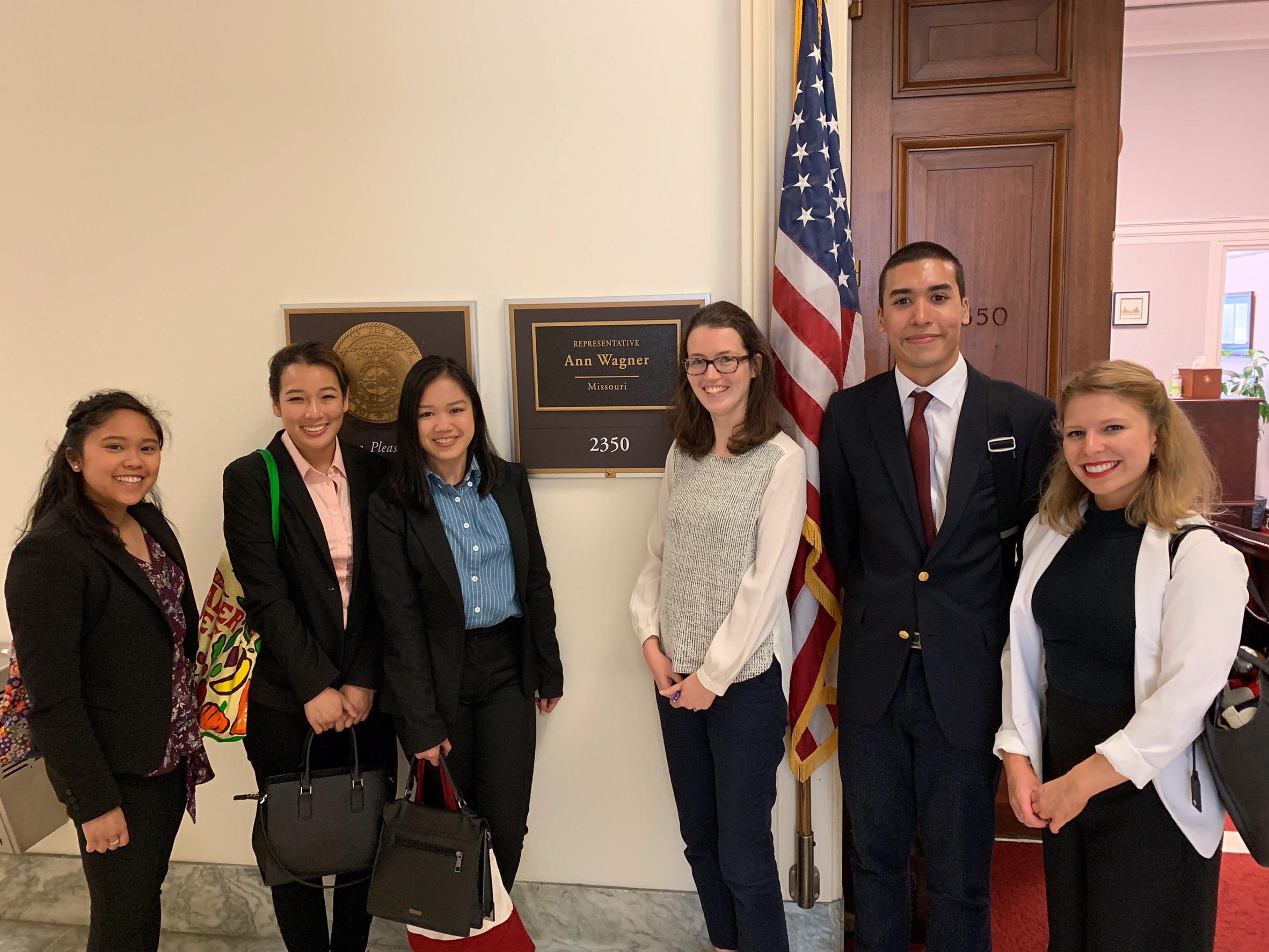วันที่นำเข้าข้อมูล 12 Nov 2024
วันที่ปรับปรุงข้อมูล 12 Nov 2024
Read Natalie’s Experience as a Thai-American Second Generation in Washington

My name is Natalie Tantisirirat, and I’m from Lakewood, California. I’m a recent graduate from the University of Michigan where I did my Master’s in Southeast Asian Studies, although my heart still lies with UCLA, where I did my undergrad. I applied for the Thai-American National Internship Program (TANIP) because I wanted to have the experience of working on foreign policy, specifically policy on Southeast Asia, in Washington, D.C. I also wanted an opportunity to connect with other young Thai-Americans who had a strong interest in politics and policy.
TANIP was a once in a lifetime experience that proved invaluable to my professional and personal development. I was fortunate enough to be a part of an amazing cohort and formed strong bonds with my Nan, Naree, and Phet. We hit the ground running as soon as the first week started. We had to opportunity to have one-on-one meetings with people who in so many different sectors. We met individuals who worked in Congress, both the House and Senate. We met individuals from think tanks, consulting firms, the state department. Everyone was very helpful and kind, and gave much appreciated, frank career advice. The networking opportunity and conversations gained from the first week of our internship was priceless. More importantly, these conversations introduced me to so many careers that I previously did not know about. It helped me gain insight into what type of career and interests I had, and how I could incorporate my own education and background into my career.
My internship at the Center for Strategic and International Studies (CSIS) has been incredibly rewarding. I’m grateful for my supervisors, Kim Mai Tran and Andreyka Natalegawa. I don’t have a ‘normal’ policy research background. In fact, for my undergraduate degree, I studied Music History. Kim and Andreyka took a huge chance hiring someone with such a humanities background, but I’m really grateful that they did. I’ve learned so much working with the Southeast Asia Team. Everyone has been nothing but patient and kind. During my time at CSIS, I’ve worked on issues I was formerly unfamiliar with, such as trade policy, maritime security, and technology/cybersecurity policy. In fact, my research interests have shifted to focus on technology and cybersecurity policy in Southeast Asia. I’ve had the opportunity to partake in delegation visits, attend events at other think tanks and embassies, and meet distinguished scholars from the field. Kim and Andreyka have pushed me to write, publish, and move out of my comfort zone to engage in topics that I was previously timid of. The connections they’ve helped me build and I know that I’ve grown so much professionally and academically because of their guidance.
One of the most rewarding experiences I’ve had at CSIS was assisting with the South China Sea Conference. It was so rewarding to see the research and logistical work that I’ve put in come to fruition in such an impactful way. The conference was well attended and I learned so much more about maritime security issues in the South China Sea from attending the event as well. I also had the opportunity to connect with a Thai scholar who helped provide me with research and career advice.
I’ve also enjoyed working at the Royal consulate during the Embassy training week. I’ve learnt a lot about the visa and passport application process, and generally what services the consulate provides for Thai nationals in the United States. All the staff at the consulate have been very welcoming and I greatly appreciate the time they took to teach us about the consulate.
Looking back on my time in D.C., I’m so grateful for all the opportunities I’ve had and all the people I’ve met. But I’ve also learned that my Thai heritage has shaped so many interactions in a positive way. I’ve learned that I do have something to contribute to the discourse on foreign policy, when I incorporate my perspective as a Thai-American and my knowledge of the regional area. Diversity and representation is important, especially when it comes to the people working on foreign policy. I hope to continue working in D.C., and get to a place one day where I can help guide future TANIP participants. Thank you again, to everyone at the Thai Embassy, the U.S. Asia Institute, and my team at CSIS.
สถานเอกอัครราชทูต ณ กรุงวอชิงตัน
Consular Office (ฝ่ายกงสุล)
2300 Kalorama Road, N.W. Washington, D.C. 20008
Office Hours
Monday - Friday 09.00-17.00 hrs.
Official Holidays
Official Holidays